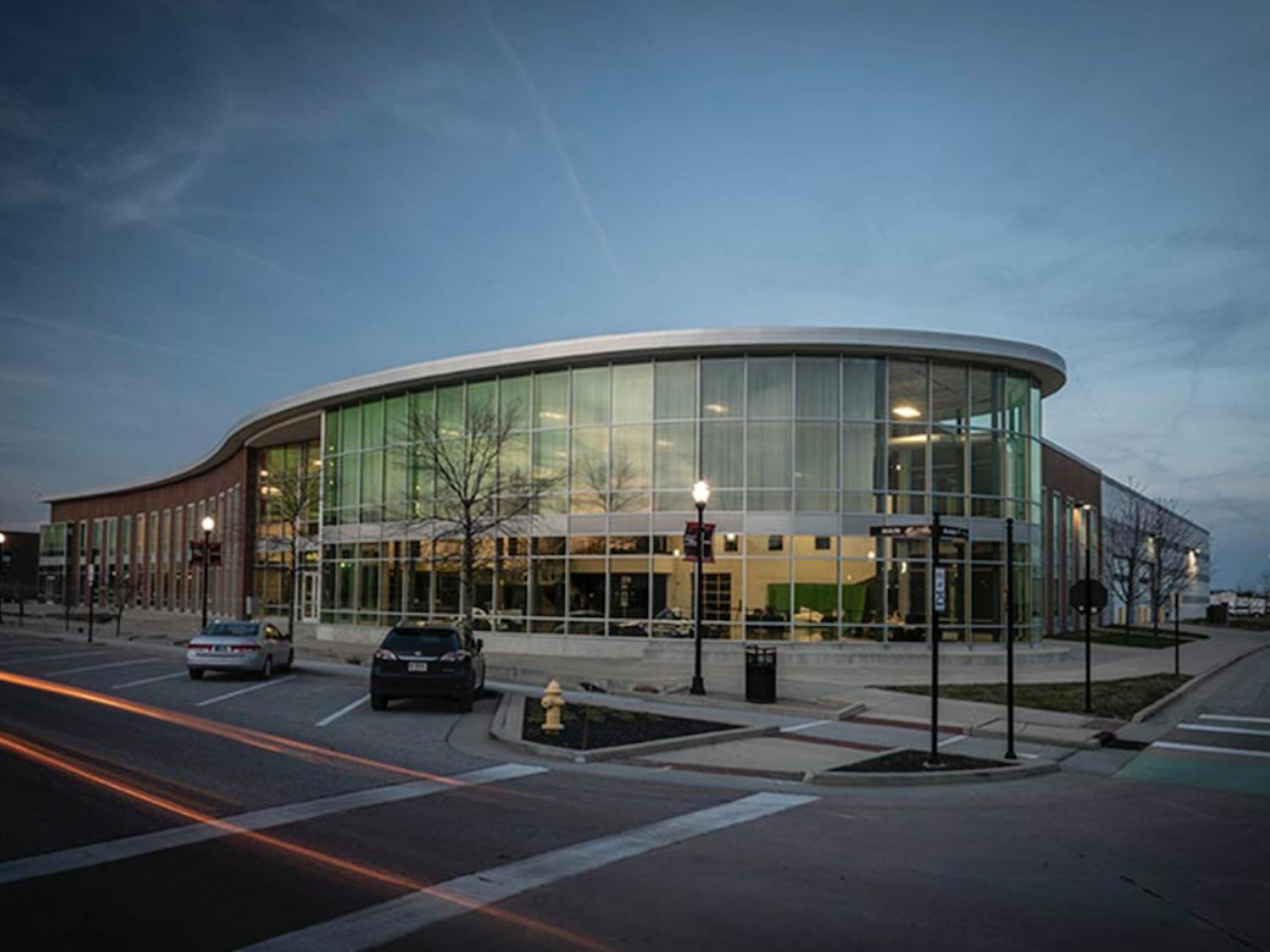SIRI allows students to socialize and share their week’s experiences in a safe space.
By Paris Garnier
When Jake Desmond attended his freshman year at IUPUI, he did what many other students did: drink. By the time he finished his second semester, his GPA was a 2.3. Life wasn’t going the way it needed to. Something had to change.
Desmond realized IUPUI lacked space for students struggling with recovery and addiction to talk and support each other. So he built his own space: Students in Recovery of Indianapolis (SIRI) to fill a gap in his and other students’ lives.

SIRI began as a student organization, with Eric Teske, the assistant director of substance abuse prevention in Counseling and Psychological Services (CAPS), working as its faculty advisor. Desmond wrote the constitution himself, and on Oct. 9, 2014, it began.
SIRI is an addiction recovery support network that focuses almost entirely on social support between peers. The group functions without an overarching program or a religious core. Anyone interested is welcome to attend and be a part of the dialogue, including students who may not have substance abuse issues but want to be allies of recovery.
“We try not to overcomplicate it and make it into some program that has all these forms and barriers and memberships and levels and tiers,” Teske said. “It’s kind of freeform right now--maybe that’s because it’s new, maybe that’s because it works--but it’s a way to get connected and plugged in.”
The presence of allies can be a point of contention for some recovery groups, but not SIRI. Many members, including Teske and Desmond, are in favor of being open to everyone. It allows students who are susceptible to substance abuse as well as those who simply choose not to drink to socialize in an alternative setting.
One reason why collegiate groups tend to shy away from including allies is that they often give scholarships to recovering students. SIRI doesn’t have a scholarship program and receives funds strictly through grants.
SIRI avoids categorizing recovery, as it is a “spectrum” and often overlaps with mental health issues, like depression, bipolar disorder, and ADHD
“We’ve sort of blurred the lines between mental health recovery and addiction recovery in general,” Teske explained. “They can be in a supportive environment regardless.”
Each meeting is led by a Recovery Coach from Fairbanks Addiction Treatment Center. Their purpose is to guide and facilitate conversation, rather than enforce an agenda or topic. Students discuss how they’re feeling, what’s been challenging in the past week, and make friends. The goal is to talk, not to suggest students leave other groups they’re involved in, such as AA.
The first meeting of the semester will be Feb. 22 from 3-5 p.m. in CE 310. Because SIRI doesn’t require a formal membership and keeps attendees anonymous to outsiders, keeping track of involved students is difficult. Making time for everyone to attend on a weekly basis is even more challenging, which class scheduling compounds.
“It ebbs and flows,” Teske said. “This past semester, schedules were a big issue … it really put the brakes on how we were growing.”
Beyond weekly meetings, SIRI has sober events for participating students. Before he moved to Bloomington, Desmond loved the coffeehouse events with live music in University Tower. Shortly after enrolling at IU, he also developed the student recovery support group there.
First meetup of the semester is Wed, Feb 22 @ 3-5pm in CE 310. Students RSVP with recovery@iupui.edu so we can get your City BBQ order.
When Desmond developed SIRI, he had high hopes.
“I just really saw a vision of having students working together on a college campus all the way into recovery,” he explained. “I had really big visions at the start, like free scholarships, and big sporting events, and a dedicated room on campus, or like a large study space on campus.”
Although SIRI has stayed small and sometimes struggles, it has nevertheless impacted plenty of students. Since he stopped drinking, Desmond’s GPA has been a 3.8/3.9 and majors in both chemistry and exercise science. He’s delighted to have made friends through SIRI and its sister group and hopes his hard work will take him into medical school.
Students In Recovery Indianapolis: Supporting Peers

Heads up! This article was imported from a previous version of The Campus Citizen. If you notice any issues, please let us know.
As part of CADCA Capitol Hill Day we got the chance to speak with representatives in Congress and the Senate. Congresswoman Susan Brooks was especially receptive, and seemed very pleased to learn about Indiana's only collegiate recovery programs at @IUPUI and IU Bloomington. It was great working closely with Drug Free Marion County and CADCA to discuss alcohol and drug prevention, education, treatment, and recovery with our elected officials. #collegiaterecovery #jagWELL




